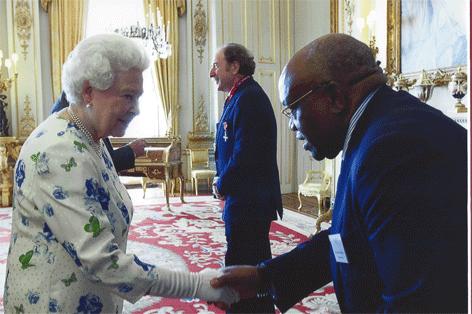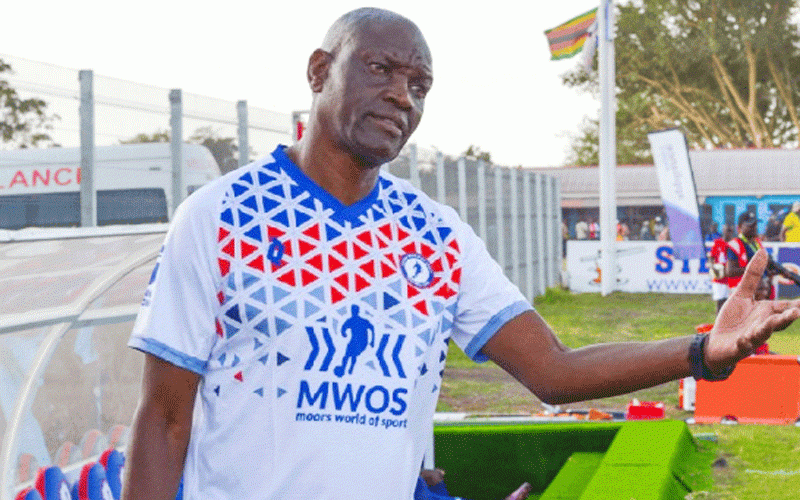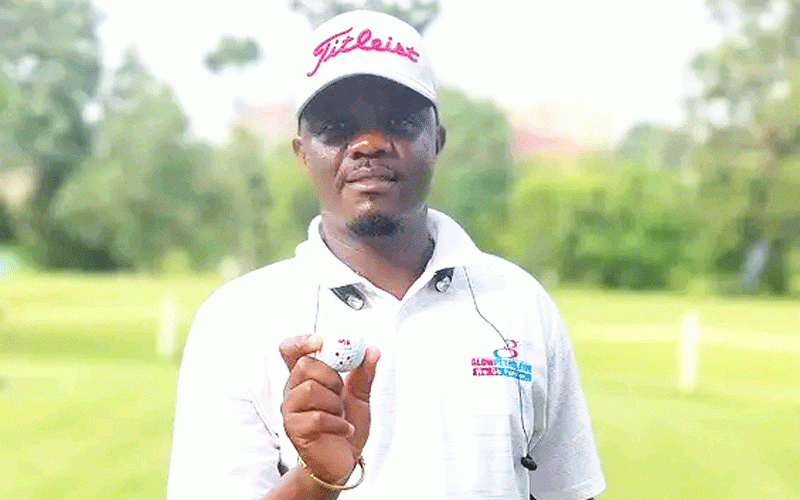
Standard Editor Nevanji Madanhire (NM) had a chat with Tommy Sithole (TS), former Zimpapers editor-in-chief towards the end of the London Olympics on the general state of sport in Zimbabwe and what can be done to improve it following the country’s dismal performance in London. Following are some excerpts:
About Tommy Sithole
- Former Zimpapers Editor-in-Chief;
- Former president of the Zimbabwe Olympic Committee (ZOC);
- Former secretary-general and then president of the Confederation of Southern African National Olympic Committees;
- Elected in1997 and re-elected in 2001 to the position of secretary-general of the Association of National Olympic Committees of Africa (Anoca);
- Elected to the IOC in 1996 during the Games in Atlanta;
- Elected to the IOC Executive Board in 2002;
- Served on several IOC Commissions;
- Presently Director, International Cooperation and Development of the IOC;
- Director of IOC Permanent Observer Mission to the UN in New York;
- Holds a Master’s degree in sports organisation management and;
- Honorary doctorate from the United States Sports Academy.
NM: Are you happy with the way sport is covered in the media? TS: Sport is as important to our lives as the economy, for instance. It contributes to the economy, to education, to development to the empowerment of women and girls. It is an incredible tool for development and national cohesion and just as powerful a destructive force, if abused. Like other news, sport should also be placed on the front pages of newspapers when necessary.
NM: In a nutshell; what is the problem with Zimbabwean sport? TS: We simply do not appreciate sport beyond its entertainment value. But most importantly, we do not have sports administrators with the qualifications, quality, dedication and ability to provide expert leadership. It does not matter how much money government pumps into sport. As long as we did not have quality leadership nothing would come of it. We will continue to have family-produced and supported medalists whose rise, development and occupation of the victory podium has absolutely nothing to do with national sports associations.
Secondly, we need to decide as a nation what sport we should support fully with resources, both human and financial, in order to project our country, for socio-economic reasons. Kenya produces some of the world’s greatest athletes but who’s ever heard of a Kenyan victory in 100, 200, 400 or relays? They know what they are good at, middle-to-long distances. They know what they want, and they direct their resources accordingly. What is our potential? We dare send triathlon and canoeing competitors to the Olympics! It’s a travesty.
We began in 1980 on a high note with our first Olympic gold, why have we failed to build on that over the years?
- Chamisa under fire over US$120K donation
- Mavhunga puts DeMbare into Chibuku quarterfinals
- Pension funds bet on Cabora Bassa oilfields
- Councils defy govt fire tender directive
Keep Reading
Our successes in sport have always been in spurts. I really don’t know how successful the women’s hockey team was besides winning the gold medal. How much was the team prepared? What competitions did it play and with who to qualify for the 1980 Olympics and what teams did it encounter to win the gold? I’m thinking here that most teams were “invited’’ to the Moscow Games because of the western boycott. Right? However, without taking anything from that team, the question is how much and what did we do to follow through that victory? What was the legacy of the gold medal?
You could ask the same about our sport elsewhere. We had incredible tennis players, world beaters. Golf had three number ones at different occasions. Does anyone remember that Zimbabwe had a world champion diver? They were not products of any systematic approach to national talent identification and development system. Who in the relevant national sports associations can claim to have produced the golfers, the tennis players and the diver? Same question for the hockey team of 1980 Olympics and Kirsty Coventry.
NM: In what place do you think sport falls in our national psyche? TS: On a scale of one to 10, just three, I’m afraid. Let me however hasten to qualify thus; the standard “national psyche’’ is not homogeneous. It is specific to our national profile. The different racial communities in our country have a totally different cultural understanding of, and approach to sport. So is the appreciation and understanding.
NM:What role do you think government should play in sport? TS: Government’s role is simply to ensure that the environment is conducive for the people to develop sport — legislation, tax laws that allow for special write-offs for sponsors, tax-free imports for specialist sports equipment that is not available in the country, etc. There are a number of such laws in our books already, and provisions, that our administrators don’t simply know about. For instance, a few years ago one minister, who had absolutely nothing to do with sport, became the darling of sports organisations because he was always giving national teams the funds they needed for national football team and supporters’ travels. What was never explained was that this money was from National Lottery allocations which are controlled by the Ministry of Home Affairs and which are provided for in the Lotteries Act.
With the exception of a very few individuals in some, not all, sports associations, we still do not have the capacity to plan and execute sports programmes in the country, I’m afraid.
Yes, we need more resources, human in particular. Give a billion real dollars to sport in Zimbabwe today and we will still be in the same mire at the 2020 Games.
NM: Your future after the IOC? TS: I have, for a start, this grand idea of establishing the first-ever high level sport administration institute for Zimbabwean and African sports leaders. I have ideas for the funding. This is where government comes in. It needs the authority of the government to simply provide the environment for the sponsors to fully fund the project. I have my own ideas of how this project could provide the funding for high level and elite sportspersons. I want to contribute to our nation’s appreciation of the real and full value of sport. I want to contribute to a new culture of sports administration in which the elected official sees himself or herself as only holding the position in trust, knowledgeable and appreciative of the normal tenets of modern sports leadership of running transparent and accountable organisations. Good governance is everything in sports administration today. It comes with training and sacrifice. It is just as important as the professional and well-provided training we need to give our athletes if they are to deliver for our nation.
Sithole speaks on Kirsty Coventry
NM: What are your comments on Kirsty Coventry’s achievements in past Olympics? Has the nation failed her in a way? TS: Sadly, there was too little put into supporting Kirsty. By the same token, we expected way too much from her. Two Olympic Games and an incredible haul of medals at the All African Games! Few athletes in the world have achieved as much. She is a legend. Women super athletes tend to be prima donnas. There are many who are selfless, caring and down to earth; our own Kirsty Coventry is among them. They die to do good but are very much dependent on the support society provides them.
Yes, we failed her for not building on her success. We failed her by not exploiting her experience to get more kids into the pool. We failed her by unashamedly allowing the best swimming pool in Africa to continue to waste away while tens of thousands of children in the Chitungwiza catchment area go without. Guess what, Kirsty is not even a folk hero in Zimbabwe. Certainly not the same way kids revered Kipchoge Keino in Kenya nor in the same way Usain Bolt has inspired a generation far beyond the ghettos of Kingston.











